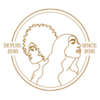May 16, 2019

By Sabrina Niyigaruye
We had the opportunity to sit down with the amazing Lisa Ndejuru, a counselor, a psychodramatist, a skilled practitioner of Playback Theatre and a founding member of the Living Histories Ensemble. Lisa has been working with the Rwandan diaspora for over 20 years as an organizer and an activist.
Come and sit with us.
S: Where do you come from?
L: I was born in Rwanda, grew up in Allemagne. I came to Canada afterwards as a teenager.
S: When was your first encounter with pain?
L: Well, growing up, the immigration process was really difficult which has caused me to grow up really quickly since as a child, I was extremely protected.
I was a really joyful child.
Although, as I came here, it became a little more difficult since I did not understand immigration nor did I know anyone around me that had gone through the process. There was a lot of incertitude in my family due to the immigration.
The immigration process also affected my education path. I began my education in French then I went to German and then back to French. I was asked to perform really well while I was losing bits and pieces of my education due to the movement and the change in languages.
I was not able to perform the way I wanted to.
I was leaving friends behind as well.
It became really hard.
I went through an existential crisis.
I think I had a lot of anxiety. I was going through a lot of things that I was not aware of as a kid.
I thought this was just general anxiety
S: When was your first encounter with mental health?
L: When I arrived in Canada, I had my cousin who I grew up with and we were really close. When I lived in Cologne, he lived in Bruxelles. When I arrived in ‘82, he was already here and came to welcome me at the airport .
When my cousin committed suicide, I entered in this dark spiral. Suicide was not a reality for me. When this happened it became a possibility, there was something mesmerizing to me about it. I started to have this sort of obsession.
Depression is like a funnel. We start in this wider state of mind and then, we sink into something that gets more and more narrow and that is when we become much more impulsive. I obsessed with this morbid idea for a long time.
I had a hard time performing at school and projecting myself into the future.
S: As an african woman of the diaspora, what was your relationship with Africa growing up?
L:So, 3 years later, in 1990, we went back to Africa and visited home. It was an experience that gave me new perspective.
I saw my grandparents.
I saw refugee camps.
I did not know all of this.
I lived all of this and then I had to come back to Canada.
We had to come back to our normal lives, back to our daily lives.
After that, the war started. I was shocked. All of what was happening was just ….
How do you manage what cannot be reconciled?
The dissonance between the two realities threw me off.
The dissonance between the two realities threw me off.
S: When did you perceive the effect of mental health in your surroundings?
L: In my community, I felt like we had a hard time growing up and taking our place.
I was among the oldest of a generation. I saw that the people after me also had a hard time taking their place. Therefore, I tried to find resources. I started in university. I studied psychology, I felt like it was too theoretical. It was completely separate from lived experience, I could not get any insight. I then chose philosophy. It was not more practical at all. So, I decided to study comparative religion.
In this field, I found elements that helped me make sense of my surroundings.
Humankind has forever tried to make sense of their existence.
In this program I discovered:
The sacred and the profane, time and space. Life Its experiences and its limits, myths and rituals.
It allowed me to make sense of what was occurring around me.
However, I did not know what I would make of it professionally. For this reason, the anxiety remained.
I knew that therapy was something I found really interesting.
I knew I wanted to help myself.
I wanted something holistic in which we would explore values and the existential.
I wanted a master’s program that was not too marginalized (even though searching for meaning can be marginalized).
At the University of Sherbrooke, there was a counselling program in the Theology department. I was not sure of program at first. I was angry against religion since for me colonization and religion came hand in hand. For me, colonization led to genocide. If we lived uprooted or lived those kinds of ruptures, it was, in my view, in part due to religion.
If I finished this degree it was in large part because I was accepted so openly. They accepted me just as I was. This was salutary. I was not obliged to pledge allegiance to anyone or anything. The approach of the program was based on values. It was also extremely rigorous, rich and eclectic. This program provided us with multiple approaches and ways of thinking. It was a practical and efficient program.
What surprised me is when they said that the therapist is his first tool.
Therefore, I knew I had to go through the process myself before working with other people. This idea of congruence really pleased me. After that, I did other certifications such as psychodrama.
S: Where did psychodrama come from, for you as a passion?
L: I have always worked on me, my family and my community. I was still worried about my family and our inability to grow up fully. There was something wrong.
My late aunt, a psychologist and I found a psychodramatist to work with my whole family. It was really efficient. What I have learned from it is that we can symbolize a dynamic through this form of psychotherapy. For instance,with my family, the murder of my grandfather, who was assassinated in 1962, had linked the family members together in interesting ways. It is through psychodrama that we saw the strength of that bond. It is a really powerful method. During my degree, I had the chance to work with a master in psychodrama which brought me to complete a certification in the subject.
S: What do you think of the relation our communities often make with faith and mental health ?
L: Each religion has a different way of viewing mental health. I respect that. I am all for the freedom of belief.
It is important to know what is good for you. I am concerned when someone is discouraged to seek the resources they need. I worry about practices that hold the “reaching for help” by a person against them. It is not a faith crisis to seek help.
It is not a faith crisis to seek help.
S: In our communities, if we do not go to psychologists or counsellors, what do we turn ourselves to?
L: I do not think it differs from other communities. We can find different ways to cope. This ways can build us or hurt us more. For example, Alcohol and drug are common ways to cope. This coping mechanism is used from the ones in the street to the middle-class worker. Although, it can also be sport or hard-work. Coping mechanisms can also be things that are rewarded in society especially in our communities where hard work is well seen. I do not believe mental health advisors are the only ressources. But it is great, I mean I am…
I think it is interesting to discover ourselves and work on ourselves.
I think it is interesting to discover ourselves and work on ourselves.
S: So it is not the only outlet?
L: No, not at all. Creation is one.
Expression and Sharing things is a way.
The idea is using means that allow us to reach our ends.
S:I find it interesting that you mentioned alcohol since it is something that is quite common in our celebrations and cultures. Although, it is not something we question ourselves on in our communities. I have also remarked that we give a lot of importance to performance when it might actually be just a coping mechanism. In our communities, parents often want to give to their children this performance dynamic.
Sometimes I ask myself whether we get to know our children well with this performance dynamic…
S: In our african communities, do you believe that the reason why we do not consult is because we valorize pride, this idea of protecting ourselves and we do not give value to vulnerability?
L: We hide ourselves enormously. Vulnerability is not well seen. It is seen as a weakness. So we hide ourselves. We put on a facade. We hide in order to not feel or be perceived as diminished or incompetent. A lot of energy used to hide our weaknesses. There are a lot of preconceived ideas. And, when we do open the door to consulting, it does not always look the way we imagine it might. But the same is true for me as a therapist: I have worked a lot on (put a lot of energy into) therapy and trauma, I spoke to one of my aunts in Rwanda to get her perspective on things. She told me: “In reality, that is not where it is happening. What is really hard here now is how we create families. There is a lot of values that have changed. It does not express itself in post traumatic stress. It expresses itself in the difficulty to create a bond…”.
S: As well, what I have realized is that the trauma of parents transmit itself to their children. I have seen in my community, children filled with hate, trauma and depression like they had lived the realities themselves. This bring me to my next question which is do you believe that the low amount of importance we give to mental health would be present if trauma was not an element in our communities? Since I believe that it is often around this dialogue of PTSD and trauma, traumatic events in our communities that we have this mental health conversation.
L: I have a hard time even imagining “what if the Genocide would not have happened…”
S: I understand. I just think that the conversation is always around traumatic events. I know there needs to be a trigger or something.
L: No, you do not need a trigger. You can work with any issues that you have. You can work with the body that you have. This works well for people that are 2nd or 3rd generation who do not have something concrete to look back to and understand what would make them feel this way or that. You do not always need a traumatic event to validate you seeking better mental health.
You do not always need a traumatic event to validate you seeking better mental health.
Although, Would we need to have them or would we have them?
S: Would we have them.
L: Is there a positive way to promote mental health like a hygiene, in a strength based, proactive manner?
S: Yes, this is what I mean. I think I have always grown in communities where the narrative was related to mental health. Therefore, this is why for a long time, I was thinking would we still hold those conversations if the narrative was absent.
L: I think it is interesting. I had a hard time answering this question because I never uncoupled the trauma narrative from mental health in our community. And, when I see the latest research about trauma, I think a lot about transmission. For me, learning is not much about someone pouring knowledge and someone waiting for that knowledge. I think there are questions we ask ourselves and when we are willing to hold and engage them, they generate answers. I think it is quite similar with healing.
If we are willing and able to hold something.
Tell ourselves “I want to change this one thing” & “I want to see what is wrong”.
Start thinking how will it look like after.
This process too can generate healing.
I like coaching because it separates therapy from the trauma and etc. and redirects the conversation towards growth. It is not always psychotherapy that we need first. Sometimes we need concrete elements.
S: What are the concrete elements?
L: For instance, a refugee comes here not being sure about where they are and where they are going. When you ask them: “do you want to speak about what is going on?” By doing so, you are shaking the foundations and moving the ground. That is not what he needs right now. Right now, he needs resources and safety.
For example, after the Genocide, psychologist from everywhere would ask survivors: “Do you want to speak about the traumatic events you lived?” Although, for them, it was not about trauma in that moment. What they would reply back was: “Can I take this SUV? I need to find bones.”
But, Pride can still prevent some from having access to those resources as well.
S: Yes, pride can stop us from the resources and support we might need from our communities. I believe our communities offer support. Although, is the support we offer the correct one? We know how to create right spaces but do we know how to create safe spaces?
I
think this is quite
interesting because I…..

Sabrina Niyigaruye
Writer





